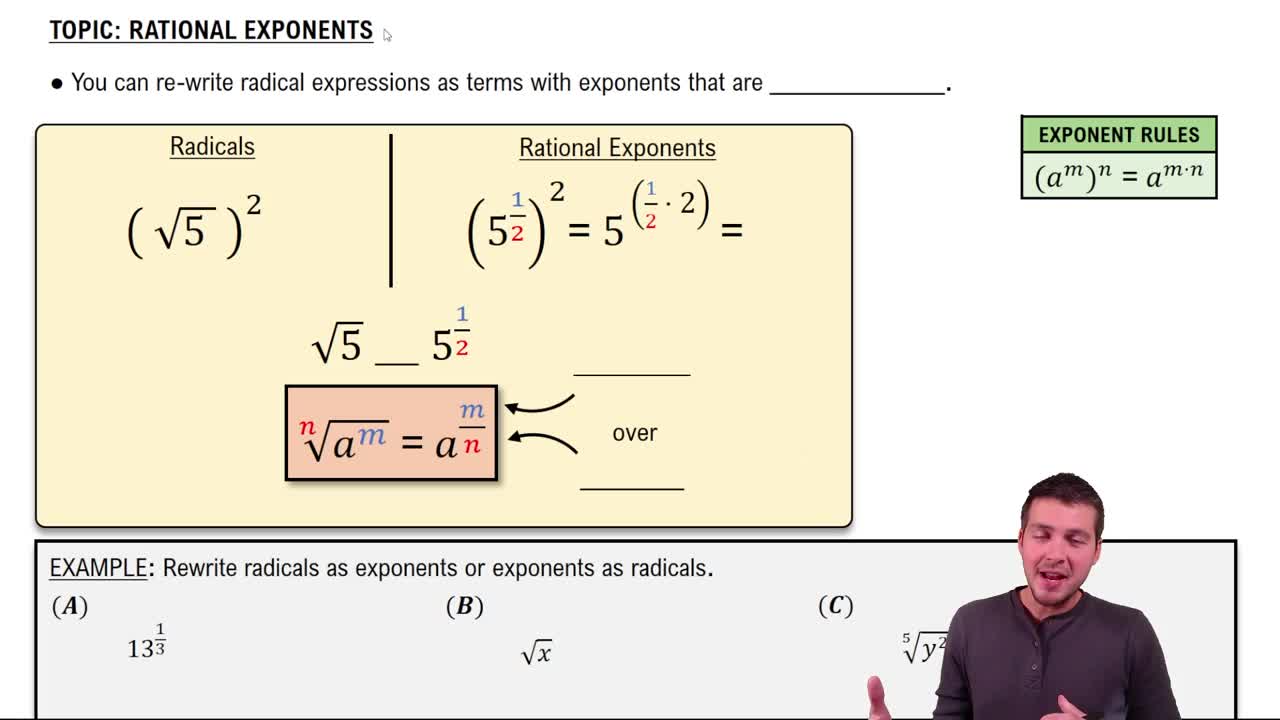Here are the essential concepts you must grasp in order to answer the question correctly.
Rational Exponents
Rational exponents are exponents that can be expressed as a fraction, where the numerator indicates the power and the denominator indicates the root. For example, an exponent of -1/3 means to take the cube root of the reciprocal of the base. Understanding rational exponents is crucial for converting between exponential and radical forms.
Recommended video:
Radical Expressions
Radical expressions involve roots, such as square roots or cube roots, and are often represented using the radical symbol (√). The expression x^(1/n) corresponds to the n-th root of x, and negative exponents indicate reciprocals. Recognizing how to manipulate and simplify radical expressions is essential for solving problems involving exponents.
Recommended video:
Radical Expressions with Fractions
Properties of Exponents
The properties of exponents include rules that govern how to simplify and manipulate expressions with exponents. Key properties include the product of powers, quotient of powers, and power of a power. These rules help in transforming expressions like 3x^(-1/3) into their equivalent radical forms, facilitating easier calculations and comparisons.
Recommended video:



